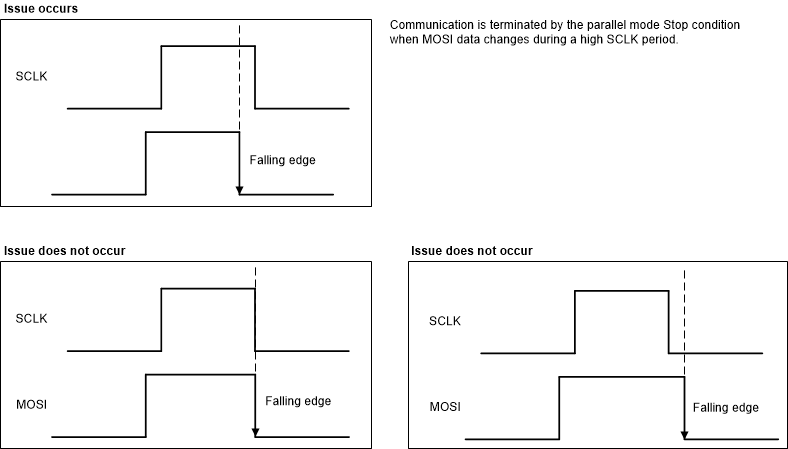SLOA140B April 2009 – November 2018 TRF7960 , TRF7960A , TRF7961 , TRF7962A , TRF7963A
1.7 Timing Conditions for MOSI With Respect to S_CLK
When in SPI mode, MOSI should be able to rise or fall independent of S_CLK as long as SPI timing requirements are met. However, while in SPI mode, if MOSI has a falling edge before the end of a high period of S_CLK, then the device treats it as a parallel mode stop condition and does not register the data.
This behavior occurs only when S_CLK and MOSI are high and the state of MOSI changes from logic high to logic low before the state of S_CLK change from logic high to logic low (see Figure 8).
 Figure 8. Parallel Mode Stop Condition
Figure 8. Parallel Mode Stop Condition In use cases where SPI is not naturally synchronized, the workaround is to add software guards to prevent MOSI from changing state before S_CLK.